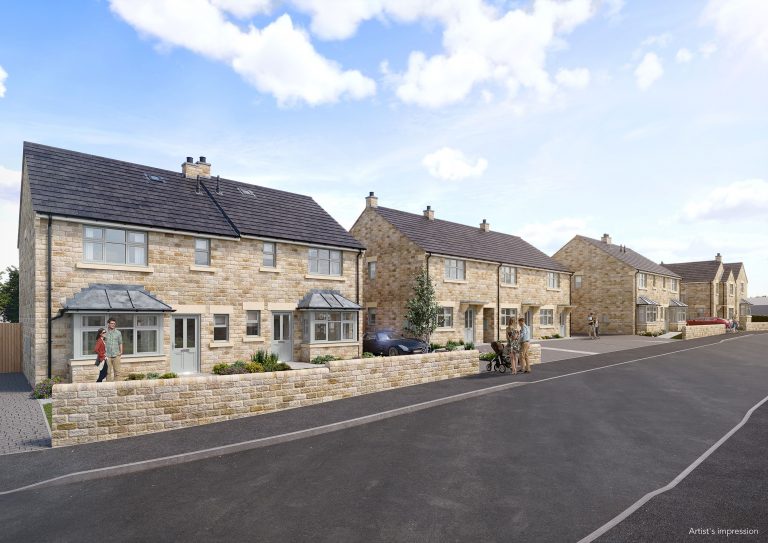The construction industry’s growth in 2023
The winners of the East Midlands Bricks Awards 2023 to be revealed next week
Tickets can be booked here.
The event, which will begin at 4:30pm and continue until 7:30pm, will also feature Mike Denby, Director of Inward Investment and Place Marketing at Leicester City Council, as keynote speaker. Complementary drinks and canapés will be served on arrival. Dress code is standard business dress.Shortlist for the East Midlands Bricks Awards 2023
Most Active Estate Agent – sponsored by OMS
BB&J Commercial
Mather Jamie
FHP Commercial Development of the Year – sponsored by MKMHBD – Power Park, Nottingham
Henry Brothers Construction – SportPark Pavilion 4, Loughborough
Bolsterstone Group Plc, Chesterfield Borough Council – One Waterside Place, Chesterfield Responsible Business of the Year – sponsored by Press for Attention PR Cawarden G F Tomlinson Aspbury Planning Limited Residential Development of the Year – sponsored by Sterling Commercial FinancePhoenix Brickwork UK Ltd – St Marks student accommodation, Lincoln
Elms Developments – Elms Phase Two Ltd
St James Securities, Grainger – The Condor, Derby
Deal of the Year – sponsored by Mather JamieRushton Hickman Limited – Branston Locks deal
Bassi Group Nottingham Ltd – Job saving Pizza Hut takeover
Rigby & Co – Aida Factory deal
Developer of the Year – sponsored by WardChevin Homes
Clowes Developments
Brackley Property Developments
Architects of the Year – sponsored by Blueprint InteriorsIMA Architects
Matthew Montague Architects
Influence Landscape Planning and Design
Excellence in Design – sponsored by CawardenChevin Homes – Amber Farm
Marchini Curran Associates – Phoenix cinema and art centre
Trident Construction Services – Lark Hill Retirement Village refurbishment
Sustainable Development of the Year – sponsored by Viridis Building Services LtdHBD – Power Park, Nottingham
Henry Brothers Construction – SportPark Pavilion 4, Loughborough
Elms Developments – Elms Phase Two ltd
Contractor of the Year – sponsored by RammSanderson CawardenEE Smith Contracts
Bowmer + Kirkland
The Overall Winner, sponsored by Streets Chartered Accountants, will also be announced at the ceremony, who will be awarded a year of marketing/publicity worth £20,000.










 To be held at:
To be held at:

Pendragon motor and leasing businesses to be sold to one of the largest automotive retailers in North America
Nottingham-based Pendragon and Lithia Motors, one of the largest automotive retailers in North America, have agreed the terms of a proposed sale by Pendragon Group Holdings Limited (PGHL) of the entire issued share capital of Pendragon NewCo 2 Limited (Pendragon NewCo) which will hold, either directly or indirectly through its wholly-owned subsidiaries, the company’s entire UK motor business and leasing business, to Lithia UK Holding Limited (Lithia), a wholly-owned subsidiary of Lithia Motors, Inc. for a gross aggregate consideration of £250 million.
Pendragon and Lithia Motors, Inc. have also agreed the terms of a strategic partnership with Lithia, including the rollout of Pinewood, the company’s dealer management software (DMS) business, to Lithia’s existing 50 UK sites and the creation of a joint venture to accelerate Pinewood’s entry into the highly attractive North American DMS market.
As part of the transaction, Pendragon’s Pinewood division, which operates the company’s proprietary DMS business, will become a standalone entity, retaining Pendragon’s existing listing on the London Stock Exchange and creating a pure play Software as a Service (SaaS) business with an accelerated growth plan.
The transaction is the conclusion of the strategic review announced by Pendragon last year and the Board believes that it will deliver an attractive cash dividend to shareholders of c.£240 million.
Ian Filby, non-executive chairman of Pendragon, said: “Pendragon has made strong progress executing its strategy in recent years and the business has been repositioned successfully as a digitally-enabled automotive retailer. Today’s announcement follows an extensive strategic review undertaken by the Board of Pendragon to maximise value for our stakeholders.
“The proposed transaction provides shareholders with an immediate dividend close to the company’s undisturbed market capitalisation as well as ongoing ownership in an exciting technology company with improved growth prospects.”
Bill Berman, Chief Executive of Pendragon, said: “Pendragon has built one of the UK’s leading automotive retailing businesses, underpinned by a market leading dealer management system, the quality of our people, long-standing relationships with OEMs and excellent execution for customers.
“The Pendragon Board considers Lithia to be perfectly placed to build on this progress. The launch of Pinewood as a standalone company is a unique and exciting opportunity to create a best-in-class product for customers, which we can market globally and drive substantial value for our shareholders and in Lithia we have the perfect partner to help accelerate Pinewood’s push into the hugely attractive North American DMS market.”
Bryan DeBoer, Chief Executive of Lithia, said: “The strategic partnership with Pinewood Technologies and acquisition of Pendragon’s UK motor and vehicle management divisions is a massive step in delivering on our longer-term growth strategy. We are excited about the great potential in Pinewood’s offering and envision our strategic partnership to further expand this SaaS business globally.
“Additionally, the proposed acquisition presents a highly synergistic growth opportunity with our existing UK presence with Jardine Motors Group; provides a new adjacency with PVM; and expands our brand and geographic footprint while serving to further strengthen our existing OEM relationships.”
Seafood industry boosted by Lincolnshire organisations’ research
Cawarden becomes Derbyshire FA’s 140th year headline sponsor
Dice appointed a Framework Agreement Supplier by NHS Shared Business Services
Location confirmed for £100m innovation and technology park
Shortlist revealed for the East Midlands Bricks Awards 2023
Shortlist for the East Midlands Bricks Awards 2023
Most Active Estate Agent – sponsored by OMS
BB&J Commercial
Mather Jamie
FHP Commercial Development of the Year – sponsored by MKMHBD – Power Park, Nottingham
Henry Brothers Construction – SportPark Pavilion 4, Loughborough
Bolsterstone Group Plc, Chesterfield Borough Council – One Waterside Place, Chesterfield Responsible Business of the Year – sponsored by Press for Attention PR Cawarden G F Tomlinson Aspbury Planning Limited Residential Development of the Year – sponsored by Sterling Commercial FinancePhoenix Brickwork UK Ltd – St Marks student accommodation, Lincoln
Elms Developments – Elms Phase Two Ltd
St James Securities, Grainger – The Condor, Derby
Deal of the Year – sponsored by Mather JamieRushton Hickman Limited – Branston Locks deal
Bassi Group Nottingham Ltd – Job saving Pizza Hut takeover
Rigby & Co – Aida Factory deal
Developer of the Year – sponsored by WardChevin Homes
Clowes Developments
Brackley Property Developments
Architects of the Year – sponsored by Blueprint InteriorsIMA Architects
Matthew Montague Architects
Influence Landscape Planning and Design
Excellence in Design – sponsored by CawardenChevin Homes – Amber Farm
Marchini Curran Associates – Phoenix cinema and art centre
Trident Construction Services – Lark Hill Retirement Village refurbishment
Sustainable Development of the Year – sponsored by Viridis Building Services LtdHBD – Power Park, Nottingham
Henry Brothers Construction – SportPark Pavilion 4, Loughborough
Elms Developments – Elms Phase Two ltd
Contractor of the Year – sponsored by RammSanderson CawardenEE Smith Contracts
Bowmer + Kirkland
The Overall Winner, sponsored by Streets Chartered Accountants, will also be announced at the ceremony, who will be awarded a year of marketing/publicity worth £20,000.










 To be held at:
To be held at:













